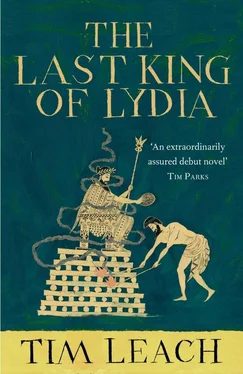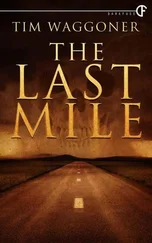Tim Leach - The Last King of Lydia
Здесь есть возможность читать онлайн «Tim Leach - The Last King of Lydia» весь текст электронной книги совершенно бесплатно (целиком полную версию без сокращений). В некоторых случаях можно слушать аудио, скачать через торрент в формате fb2 и присутствует краткое содержание. Год выпуска: 2013, ISBN: 2013, Издательство: Atlantic Books Ltd, Жанр: Исторические приключения, на английском языке. Описание произведения, (предисловие) а так же отзывы посетителей доступны на портале библиотеки ЛибКат.
- Название:The Last King of Lydia
- Автор:
- Издательство:Atlantic Books Ltd
- Жанр:
- Год:2013
- ISBN:9780857899200
- Рейтинг книги:5 / 5. Голосов: 1
-
Избранное:Добавить в избранное
- Отзывы:
-
Ваша оценка:
- 100
- 1
- 2
- 3
- 4
- 5
The Last King of Lydia: краткое содержание, описание и аннотация
Предлагаем к чтению аннотацию, описание, краткое содержание или предисловие (зависит от того, что написал сам автор книги «The Last King of Lydia»). Если вы не нашли необходимую информацию о книге — напишите в комментариях, мы постараемся отыскать её.
The Last King of Lydia — читать онлайн бесплатно полную книгу (весь текст) целиком
Ниже представлен текст книги, разбитый по страницам. Система сохранения места последней прочитанной страницы, позволяет с удобством читать онлайн бесплатно книгу «The Last King of Lydia», без необходимости каждый раз заново искать на чём Вы остановились. Поставьте закладку, и сможете в любой момент перейти на страницу, на которой закончили чтение.
Интервал:
Закладка:
‘Really?’ Cyrus said. ‘Tell me, did they say when you would achieve this great victory?’
The Spartan hesitated. ‘No.’
‘Croesus, look up,’ Cyrus said. ‘You recognize this man, Spartan?’
‘Yes.’ Lakrines inclined his head slightly. ‘I am sorry to see you this way, Croesus.’ He looked back to the king. ‘I suppose it is true what they say, if you would treat Croesus like this.’
‘And what do they say?’
‘That every man in Persia is a slave to the king.’
Cyrus laughed. ‘Tell this man of prophecies, Croesus,’ he said. ‘Tell him about the favour you asked from me, two years ago, when I made you my slave.’
Croesus swallowed, and let his eyes drop back to the ground. ‘For the boon you granted me, I asked you to send my chains to Delphi,’ he said slowly. ‘I had made many sacrifices to them. They told me if I went to war I would destroy a great empire, and that my people would rule Lydia until a mule sat on the throne of Media.’ He shook his head. ‘I wanted to know why their God had betrayed me.’
‘And what did they tell you?’ Cyrus said.
He closed his eyes against the memory. ‘They told me that the great empire I was to destroy was my own. And that you, the child of a Mede mother and a Persian father, were the mule that the prophecy described.’
Cyrus looked back at the emissary. ‘Your prophecies are no use against me,’ he said. ‘Look what your Oracle did for Croesus. You think that you can travel across the sea, and wage a war against me without consequence. Have an adventure in the East. If you win, you can take my empire. If you lose, why, then you may retreat, and come back another time. Croesus thought the same. You think I am too far away to come and wage war against you. You are wrong. Cross the sea to face me, and after I have broken your army, I will travel halfway across the world to find your cities and burn them to the ground. That is my promise to you.’
‘Cyrus-’
‘You may tell your kings,’ Cyrus continued, ‘that if they come here, I will put a collar on them both and have them kneeling at my side, like this slave who was once a king. Tell them I am a king who makes slaves of kings. Perhaps, one day, your people will win a great victory against mine. But not yet.’ He made a small gesture with his hand. ‘You may go.’
The Spartan opened his mouth to speak, but, looking once again at Croesus, he hesitated, and remained silent. He bowed, looked for one last time at the man who had been king of Lydia, then turned and marched out of the circle and into the darkness. There was silence in the court.
‘Do you think that will succeed?’ Cyrus said to Harpagus, when the emissary was out of sight.
Croesus had never seen Harpagus smile. His lips seemed to twitch; perhaps this was as close as he got to a true smile. ‘I think it will,’ the general said.
‘A fine performance, my lord,’ Cyraxes said. Others began to speak in praise, but Cyrus waved off the compliments.
‘We shall see what comes of it. It pains me to play the ignorant Eastern king. But a man who has never heard of the Spartans will have no fear of going to war against them.’ He yawned. ‘Have our people watch him until he has left the country, and send word to our contacts in Sparta. If they are going to come, we must know of it. Send for that man Tabulus as well. It is about time we gave him his orders. We’re going to put him in charge of your old kingdom, Croesus.’
Croesus did not reply. Cyrus looked at him, and for the first time Croesus saw hesitancy on the king’s face, something close to regret. Or perhaps he only imagined that he saw it.
Croesus bowed deeply, to hide his shame. ‘I am here to serve, master,’ he said.
Later, Croesus returned to the tent, stumbling with exhaustion as the first sign of dawn appeared on the horizon. He entered carefully. He did not want to wake the others.
When Cyrus had told him that the Persians did not like to keep slaves, he had thought it a piece of empty rhetoric. Yet he had spoken truthfully, for in Persia it was only those who were most unfortunate, those cursed by the Gods, who found themselves the property of other men.
Half a dozen slaves shared the tent with him. They were the favourites of the court, each with his own particular function, some quality that made him too valuable to set free. One young man was the lover of a Persian nobleman, pampered and spoiled by his infatuated master. A few years of beauty were left to him before he would be discarded for another and cast out to be a catamite for the soldiers; he spent his days staring at his reflection in pools of water and polished stones, watching for the slightest sign of ageing. Another of the slaves had been a poet as a free man, and was lucky that Cyraxes had a weakness for the epic. But the old man never liked to hear the same poem twice, and so the poet chased around the camp searching for a poem he did not know, or spent hours in the tent in a fever of forced composition. Each of them, like Croesus, was a plaything of one nobleman or another. Existing to entertain, and surviving on a whim. A single mistake would be enough for them to be cast out.
Of the six, only one was awake, his eyes like two small white stones in the darkness.
‘What happened?’ Isocrates said.
Croesus hesitated. ‘Go back to sleep,’ he said. ‘I am sorry that I woke you.’
‘You didn’t wake me. That idiot stepped on me when he came to wake you up. What happened?’
Croesus looked at the others. ‘Don’t worry about them,’ Isocrates said. ‘Nothing disturbs the sleep of a slave.’
‘Cyrus wanted to show me off to an ambassador,’ Croesus said. ‘A Spartan.’ He smiled bitterly. ‘Lakrines. The same one who came to see me, when I was king. You remember? The Gods have a cruel sense of humour.’
‘I remember him. What was that like?’
‘Humiliating.’ Croesus sat down and shook his head. ‘Every day, I think there is not another shame to endure. Now I am to be paraded. An exemplar of foolishness.’
‘Well, at least it is easy work.’
‘You think so?’
‘Ask the slaves in the mines, or the helots of Sparta. I’m sure one of them would be delighted to change places for a lifetime of humiliation.’
‘It might have stopped a war; at least that is what Cyrus said. I don’t think the Spartans will come now. That is something.’
‘Don’t be naïve. It might have stopped war with the Spartans. The wars in the north will come soon enough. Cyrus just wants them to be massacres, rather than battles.’
Croesus said nothing. Isocrates yawned. ‘What do you dream of, Croesus?’ he said.
‘What?’
‘I know you dream of something. Sometimes you cry out.’
‘Why do you want to know?
Isocrates thought for a moment. ‘I think I dreamed when I was younger. I don’t remember. I grew out of it, I suppose. I don’t think slaves dream much, as a rule.’ He paused, then added, ‘I am curious as to what it is like.’
Croesus lay down, and curled his arms beneath his head. ‘It is usually the same dream,’ he said, speaking slowly and softly.
‘Not always?’
‘No. I dream of many things. But usually, when I dream, I see a palace of fire.’
‘There’s nothing but fire?’
‘No. Everything else is dark. Like the sky without stars.’
‘You are in pain, I take it.’
‘No. Not at first. I can reach out to the walls, and they are quite cool to touch. The air is cold, like standing under trees in winter. I feel quite calm. There is no rush to move on. No fear.’ He paused, then said, ‘Perhaps it is worth what comes after in the dream, just to enjoy those moments of peace.’ He stopped again, expecting some sharp comment from Isocrates, but there was silence. ‘Are you still awake?’ he said.
Читать дальшеИнтервал:
Закладка:
Похожие книги на «The Last King of Lydia»
Представляем Вашему вниманию похожие книги на «The Last King of Lydia» списком для выбора. Мы отобрали схожую по названию и смыслу литературу в надежде предоставить читателям больше вариантов отыскать новые, интересные, ещё непрочитанные произведения.
Обсуждение, отзывы о книге «The Last King of Lydia» и просто собственные мнения читателей. Оставьте ваши комментарии, напишите, что Вы думаете о произведении, его смысле или главных героях. Укажите что конкретно понравилось, а что нет, и почему Вы так считаете.












